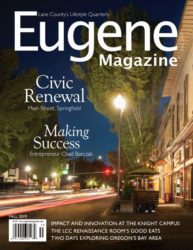Consider the equine family: horses, zebras, and donkeys. Horses often represent power and grace; zebras are prized for their striking appearance; and donkeys? Well, they’re typically the lowest limb on the family tree. They are, after all, sometimes known as asses — a rather unfair label considering they actually possess surprising intelligence and a host of other admirable traits.
Just ask Nancy Willard, a former lawyer, special education teacher, and bully prevention expert. Willard recently established the local nonprofit Caring Place Donkey Sanctuary, operating on a shoestring. With her background, it’s no surprise she loves donkeys. Or that she’s a passionate advocate for the many positive qualities equus asinus brings to the table—especially when that table is a platform for treating childhood autism, trauma, and stress, or educating families about bullying.
Willard calls her approach “the Way of the Donkey.” Her methods are based on the principles of informed trauma care and positive psychology. Those principles, she says, strongly carry over into the arena of donkey behavior.
“When horses get stressed they tend to take flight,” Willard says. “When things get tough for donkeys, they stop and get grounded. That’s how they self-protect. They get focused, stand tall, think things through.” It’s an approach, she says, that’s well-suited to traumatized kids confronting stressful situations.
Donkeys tend to seek out close relationships with other donkeys, in addition to enjoying bonding with humans. Both their approach to stress and their tendency to bond lend themselves to partnering kids with donkeys on obstacle courses. When a child-donkey pair confronts a challenge navigating course obstacles, a teachable moment arises for both partners.
Over the past year, Willard’s vision for Caring Place has hurdled far beyond her financial wherewithal. Nine donkeys currently occupy the leased property just outside Eugene, their care and feeding occupying the biggest cost. But Willard sees past that to a future at a permanent home that includes obstacle courses of varying difficulty, overnight camp experiences, capacity for expanded donkey rescue services, and increased community outreach including more intensive special education programs in area schools.
That too, says Willard, is the way of the donkey.


